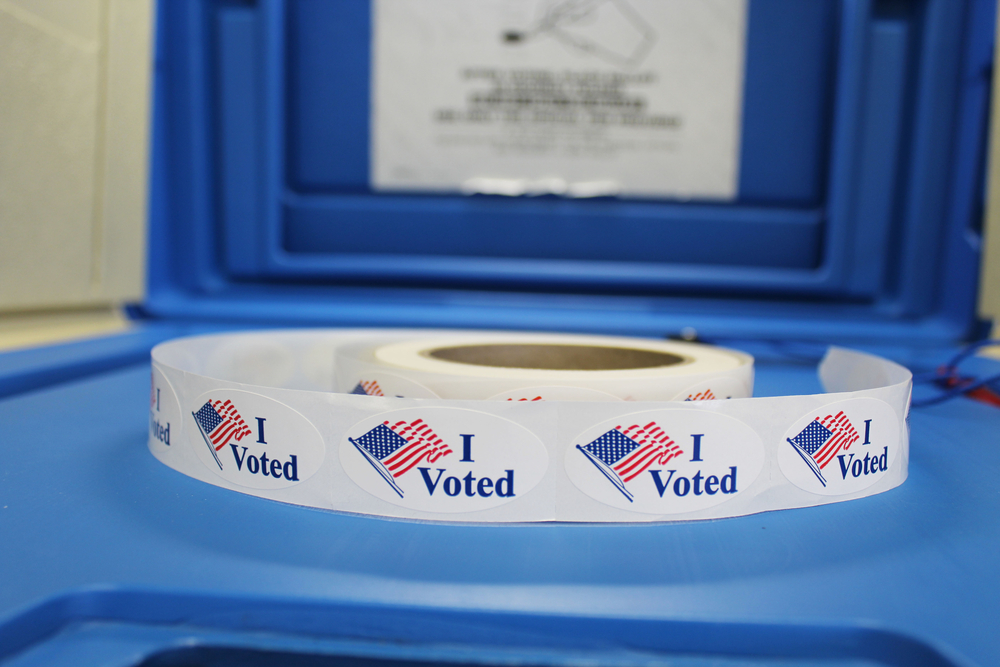By Lloyd Dunkelberger
THE NEWS SERVICE OF FLORIDA
TALLAHASSEE — Florida voters will get a chance to decide in November whether 13 is a lucky or unlucky number.
The state Constitution Revision Commission, which meets every 20 years, finished its work Monday night after approving eight proposed constitutional amendments for the Nov. 6 general-election ballot.
Those eight proposals will join five other measures already on the ballot, including three approved by the Legislature and two approved in petition drives, to bring the total to 13.
The constitutional revisions proposed by the Legislature include an expansion of the homestead property-tax exemption and a requirement for two-thirds votes by future legislatures when raising taxes or fees. The petition-drive measures would allow voters to decide on future expansions of casino gambling and would restore voting rights to felons who have served their sentences.
The 13 measures on the November ballot will be the most voters have faced since 1998, the last time the Constitution Revision Commission met and put nine amendments on the ballot. Voters approved eight of the nine amendments as well as four constitutional changes sought by the Legislature.
In 1978, the commission advanced eight ballot proposals, which all were rejected by voters, along with a citizens’ initiative on casino gambling.
This year will be the first time that ballot measures from the commission will have to be approved by at least 60 percent of voters. Florida increased the margin for approval of constitutional amendments from a majority vote to 60 percent in 2006.
In the past two decades, over the course of 11 general elections, the average number of constitutional amendments on the ballot has been more than seven, ranging from a low of three measures in 2014 to the high of 13 proposals in 1998 and this year.
It is typical for some measures to fail, although in 2004 and 2006 voters approved all 14 amendments on the ballot in those two years. But in 2012, when voters faced 11 amendments, all passed by the Legislature, they rejected eight of the measures.
One of the more-controversial aspects of this year’s commission proposals is that six of the eight measures bundle together multiple subjects. As an example, what will appear on the ballot as Amendment 9 combines a proposed ban on offshore oil drilling with a proposed ban on vaping in the workplace.
Two of the proposed constitutional amendments are limited to single subjects, including one measure that would ban greyhound racing in the state. In total, the eight ballot measures group 20 proposals that were debated and advanced by the commission.
Brecht Heuchan, chairman of the panel’s Style and Drafting Committee, which put together the final proposals considered by the commission Monday, defended the use of grouping, noting it was done by the two prior commissions in 1998 and 1978.
Commission Chairman Carlos Beruff said he was pleased with the outcome of the work.
“From protecting our state and territorial waters from oil drilling to strengthening our ethics laws, I commend my fellow commissioners for their hard work and leadership representing the people of Florida,†Beruff said in a statement. “We are grateful to the thousands of Floridians who participated in this historic process and look forward to letting voters have the final say in November.â€
Here are the commission measures headed to the November ballot, with the ballot numbers:
— VICTIMS’ RIGHTS AND JUDGES (Amendment 6): It would establish a series of rights for crime victims, including the right to be notified of major developments in criminal cases and the right to be heard in legal proceedings. It would increase the mandatory retirement age for judges from 70 to 75. It would provide that judges or hearing officers should not necessarily defer to the interpretation of laws and rules by governmental agencies in legal proceedings.
— FIRST RESPONDERS AND HIGHER EDUCATION: (Amendment 7): It would require the payment of death benefits when law enforcement officers, paramedics, correctional officers and other first responders are killed while performing official duties. It also would apply to Florida National Guard and active-duty military members stationed in Florida. It would establish a governance system for the 28 state and community colleges. It would require a supermajority vote by university boards of trustees and the Board of Governors when raising student fees.
— PUBLIC SCHOOLS (Amendment 8): It would impose an eight-year term limit on school board members. It would allow an alternative process for approving public schools, including charter schools, rather than by local school boards. It would establish a requirement for the teaching of civic literacy in public schools.
— OIL DRILLING AND VAPING (Amendment 9): It would prohibit drilling for gas and oil in state coastal waters and ban vaping and the use of electronic cigarettes in workplaces.
— GOVERNMENTAL STRUCTURE (Amendment 10): It would require all charter-county governments to have elected constitutional officers, including sheriffs. It would lead to the Legislature beginning its annual session in January in even-numbered years. It would create an Office of Domestic Security and Counterterrorism in the Department of Law Enforcement. It would revise the constitutional authority for the Department of Veterans’ Affairs.
— PROPERTY RIGHTS AND HIGH-SPEED RAIL (Amendment 11): It would remove language that prohibits “aliens ineligible for citizenship†from owning property. It would remove obsolete language that authorizes a high-speed rail system. It would revise language to make clear that the repeal of a criminal statute does not affect the prosecution of any crime committed before the repeal.
— ETHICS (Amendment 12): It would impose a six-year lobbying ban on former state elected officials, state agencies heads and local elected officials. It would also create a new ethics standard that would prohibit public officials from obtaining a “disproportionate benefit†from their actions while in office.
— GREYHOUND RACING (Amendment 13): It would ban greyhound racing at Florida tracks after Dec. 31, 2020.
